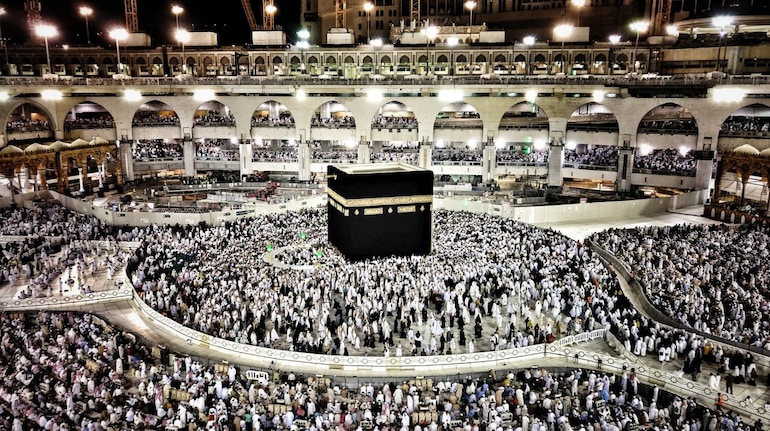



Amid reports suggesting travel restrictions on Indian citizens visiting Saudi Arabia, the Ministry of External Affairs (MEA) has clarified that no such ban exists.
According to MEA sources, the Saudi government has not issued any official notification restricting Indian travelers. The temporary visa limitations currently in place are routine measures implemented each year during the Hajj season to regulate pilgrim traffic and ensure safety.
Temporary Visa Curbs Are Standard During Hajj
Government sources told ANI that short-term visa restrictions are procedural and temporary, imposed annually during the Hajj season to prevent overcrowding in the holy cities. These limitations are lifted after the pilgrimage concludes, restoring normal travel operations.
Earlier Reports of Visa Suspension
Earlier in April, Saudi Arabia suspended certain visa categories — including Umrah, business, and family visit visas — for around 14 countries, including India. However, these were pre-planned, seasonal restrictions introduced in May 2025 to manage pilgrim traffic and ensure compliance with immigration protocols during Hajj.
The temporary suspension will remain in effect until June 30, 2025, aligning with the conclusion of Hajj. The 14 countries affected include:
India, Pakistan, Bangladesh, Indonesia, Egypt, Nigeria, Algeria, Tunisia, Morocco, Jordan, Iraq, Sudan, Ethiopia, and Yemen.
It is important to note that these measures are not travel bans, but administrative decisions aimed at ensuring crowd control and safety during one of the largest annual religious gatherings in the world.
Hajj 2025: India’s Pilgrim Quota and Key Agreements
For Hajj 2025, India has been allocated a quota of 1,75,025 pilgrims, as per a bilateral agreement signed in Jeddah on January 13, 2025, between India’s Minister of Minority Affairs, Kiren Rijiju, and Saudi Arabia’s Minister of Hajj and Umrah, Dr. Tawfiq bin Fawzan Al-Rabiah.
What is Hajj?
Hajj is an annual Islamic pilgrimage to Mecca that dates back over 1,400 years. It is one of the five pillars of Islam, making it mandatory for every physically and financially capable Muslim to undertake the journey at least once in their lifetime.
Held during the Islamic month of Dhul Hijjah, the pilgrimage spans five to six days and includes sacred rituals that commemorate the acts of Prophet Ibrahim. Hajj concludes with Eid al-Adha, a major Islamic festival celebrating devotion and sacrifice.
To manage the enormous influx of pilgrims, a quota system was introduced in 1987, limiting each country's participation to 0.1 percent of its Muslim population.
(With inputs from agencies)Discover the latest Business News, Sensex, and Nifty updates. Obtain Personal Finance insights, tax queries, and expert opinions on Moneycontrol or download the Moneycontrol App to stay updated!
Find the best of Al News in one place, specially curated for you every weekend.
Stay on top of the latest tech trends and biggest startup news.